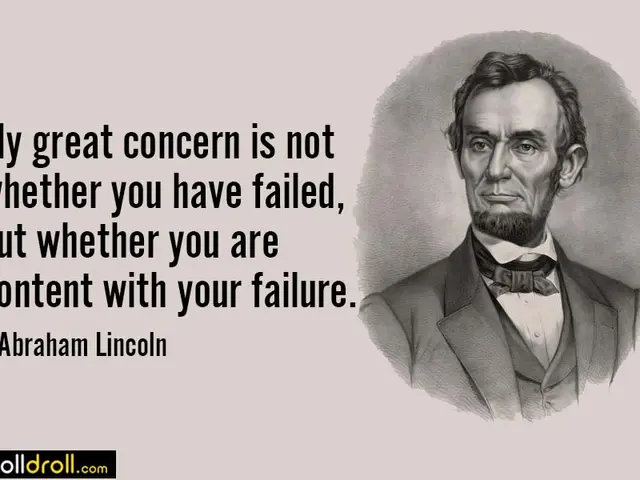Women experience heightened financial pressures and physical strain
In a groundbreaking study by the Guardian Life Insurance Company of America, it has been revealed that financial stress is the most common obstacle to achieving well-being for women. Despite 69% of women being primary financial decision-makers, only 26% describe their financial health as good.
The study highlights several key contributing factors that explain why women may report worse financial health and more stress. These factors include caregiving and career impact, financial literacy and confidence, gender imbalance in financial advice, historical disadvantages and legal/cultural barriers, and a focus on security over growth.
Women frequently serve as primary caregivers, leading to career breaks or reduced work hours. This results in lower lifetime earnings and savings capacity, reducing available investment capital and limiting wealth accumulation over time. Women often have lower confidence and literacy in areas such as investment, inflation, and taxes, pushing them toward more conservative, lower-return financial choices. The financial advisory industry remains male-dominated, with only about 22-29% female advisers, making it difficult for women to find advisers who understand their unique needs and challenges.
In some contexts, legal discrimination and entrenched gender norms affect women's access to financial services, ownership of assets, and economic autonomy, contributing to persistent gaps in financial health. Women often prioritize controlling their finances, understanding them better, and ensuring long-term financial security rather than maximizing short-term returns. This emphasis can mean slower wealth growth but reflects a cautious approach shaped by their financial realities.
The study also indicates a gender gap in emotional and physical health, with 33% of women rating themselves as doing well in those areas, compared to 43% of men. Financial stress impacts mental and physical health, as stated earlier. Cost of living, paying off debt, and saving for retirement are other top financial stressors affecting women.
The survey reveals that 54% of women cite money and finances as a primary source of stress, with only 29% of women saying they manage their finances well. A mere 11% of women say they are taking excellent care of their mental health, and only one-third of women rate their physical health as good. Only 26% of women feel they get adequate exercise, and just 28% of women rate themselves as good at eating healthily.
Over half (55%) of single mothers and 44% of female caregivers rate their financial health as fair or poor, significantly higher than the 38% average among all women. Working with a financial professional can improve financial confidence and support women in their pursuit of physical and mental well-being goals, according to Guardian.
The study shows a gender gap in financial health, with 26% of women reporting good financial health compared to an unspecified percentage of men. Achieving work-life balance is increasingly elusive due to financial burdens and caregiving responsibilities, with 84% of women saying work-life balance is essential to their well-being. Addressing these issues requires improving financial education tailored to women, increasing female representation in financial advising, and challenging societal norms that limit women’s financial empowerment.
[1] Guardian Life Insurance Company of America, (2022). Women, Money, and Power: A Study by Guardian. [2] AARP, (2020). Women, Work, and a Pandemic: A Study by AARP. [3] CFP Board, (2021). The CFP Professional Gender Gap. [4] World Bank, (2019). Women, Business, and the Law 2020: A World Bank Group Report. [5] McKinsey & Company, (2019). Women in the Workplace 2019: A McKinsey & Company Report.
- The study by Guardian Life Insurance Company of America reveals that financial health is a significant aspect of women's well-being, with 26% describing it as good compared to an unspecified percentage of men.
- Women often struggle with financial stress, as half of them cite money and finances as a primary source of stress, with only 29% saying they manage their finances well.
- The research indicates a connection between financial stress and mental health, with only 11% of women stating they are taking excellent care of their mental health.
- Achieving a work-life balance is crucial for women's well-being, but it is increasingly elusive due to financial burdens and caregiving responsibilities, as stated in the study by Guardian Life Insurance Company of America. Improving financial education tailored to women, increasing female representation in financial advising, and challenging societal norms that limit women’s financial empowerment are proposed solutions to address these issues.




